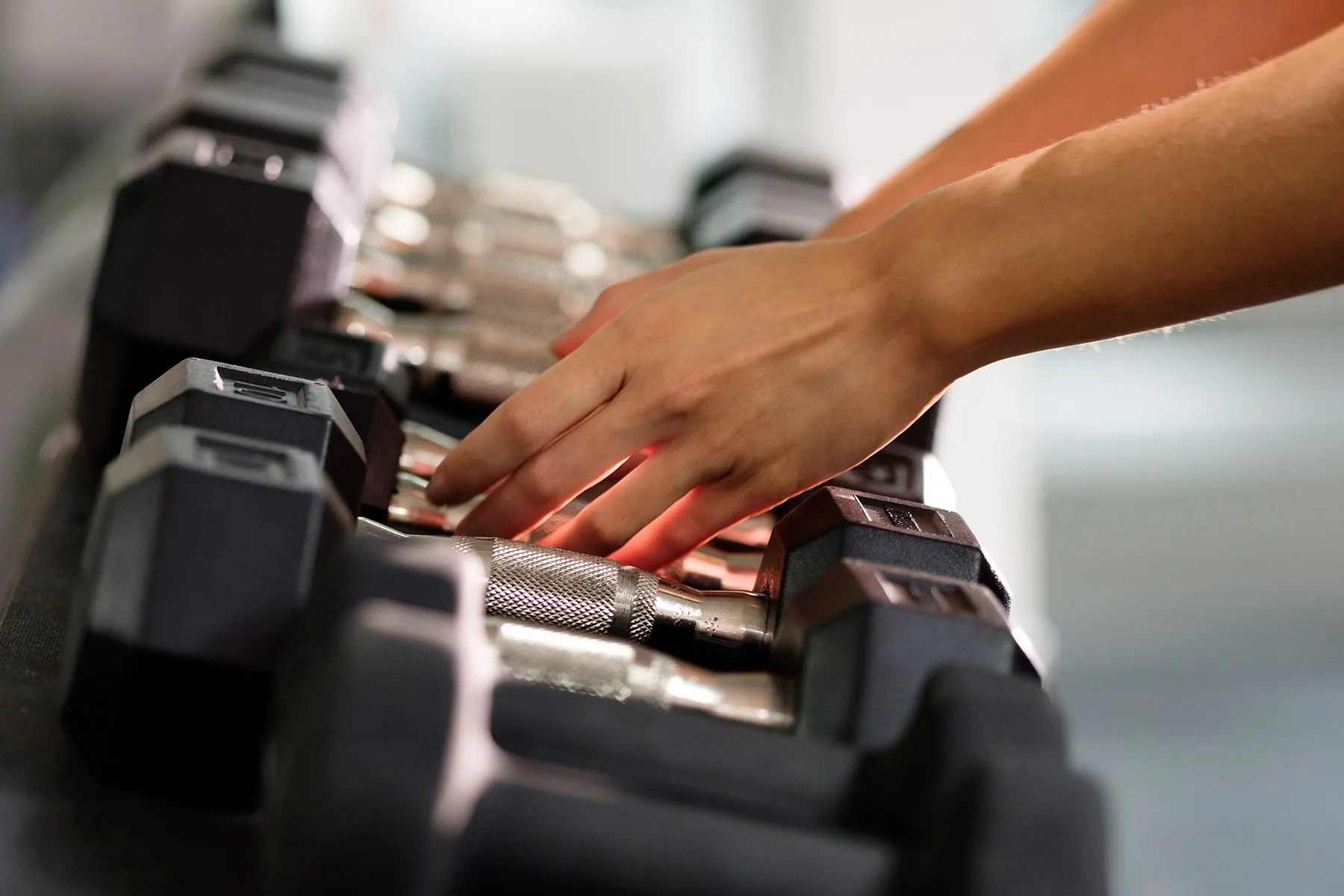[ad_1]
Morning exercise offers many benefits, but for people with eczema, hitting the gym and then going to work presents a complex set of challenges. Getting hot and sweaty can lead to flare-ups. The breakfast you eat for post-workout energy may do more harm than good. And after a heavy workout that taxes your body, the stress of deadlines and other workplace pressures can be a trigger as well.
Bottom line: If you like to jump-start your workday at the gym, you need a smart strategy that will keep eczema at bay.
Enter Matt Knight, one of London’s most sought-after fitness experts. Inspired by a book by Arnold Schwarzenegger, Knight became serious about bodybuilding as a teenager (his training partner nicknamed him “Diesel”) and gained instant success as a personal trainer at a gym in his early 20s. But then the gym closed. On top of that, he suffered a shoulder injury that prevented him from exercising. His stress levels soared, and soon Knight was dealing with severe eczema all over his body, including foot flare-ups that made it difficult to walk.
“I used to stay awake at night scratching,” he recalls. “I had it so bad on the soles of my feet, they were cracked and bleeding, and I was on antibiotics.”
Knight went from doctor to doctor but didn’t find much relief – until he figured out on his own which foods sparked his flare-ups. When he changed what he ate, the flare-ups subsided. Meanwhile, Knight found ways to exercise without bringing on a bout of eczema, and that allowed him to revive his career, which greatly reduced his stress levels.
Now in fantastic shape, he’s eager to help others who want to work out, go to work, and avoid skin issues. Here, he offers three keys to managing your eczema at the gym and then heading off to a productive and itch-free workday.
1. Keep Cool and Clean
When Knight realized that constant patch tests didn’t solve the problem, he read up on his condition, noted what seemed to bring on flare-ups, and tried to eliminate his personal triggers. Becoming hot and sweaty is a big one for him, but it’s unavoidable if you’re exercising, as Knight does, to get results. So he came up with a post-workout solution: “What I do is to get as cool and clean as possible after a workout. I think a quick shower with cool water is great if you have heat-aggravated eczema. The key is, don’t let it go on for too long.”
The National Eczema Association recommends the “soak and seal” method:
- Shower for just 5 to 10 minutes, using a gentle, soap-free cleanser.
- Gently pat your skin dry, leaving it a little damp.
- Use any topical skin medication you are prescribed.
- Within 3 minutes of getting out of the shower, put moisturizer all over your body.
- Wait a few minutes before getting dressed, to give your skin time to absorb the moisturizer.
“You don’t want to wash away all your skin oils and leave your skin dry,” Knight says.
2. Reboot Your Breakfast
By analyzing his diet, Knight became aware that certain foods made his condition worse. “Make sure you are keeping inflammatory foods to an absolute minimum,” he says. Although there isn’t a clear link between eczema and food allergies, avoiding foods that spark an allergic reaction may reduce flare-ups, according to Cleveland Clinic. Common allergies include peanuts, gluten, and alcohol. Knight recommends limiting red meat, dairy, whole grains, flour, and sugar in your diet, and eating more fish and veggies. “Also, be mindful of certain so-called health foods,” he adds. “That whey protein shake and all those eggs can be doing much more harm than good.”
3. Amp Up Your Attitude
After you leave the gym, exercise the power of positive thinking. On your way to work, instead of worrying about a potential flare-up, remind yourself that you’ve done your best to prevent one. Breathe deeply, and tell yourself that whatever happens during the day, you can handle it. Look for ways to reduce your stress on the job. If you’re a manager, for example, you might learn to delegate.
And never throw in the towel. “Whether it’s stress, environmental, or food related, keep hunting for the answer and don’t disregard any possibilities,” Knight says, adding, “There is always an answer. Don’t quit searching for it.”
[ad_2]



